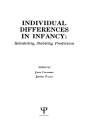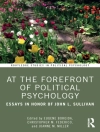This bestselling classic presents seminal theory and research on posttraumatic stress disorder (PTSD). Together, the leading editors and contributors comprehensively examine how trauma affects an individual’s biology, conceptions of the world, and psychological functioning. Key topics include why certain people cope successfully with traumatic experiences while others do not, the neurobiological processes underlying PTSD symptomatology, enduring questions surrounding traumatic memories and dissociation, and the core components of effective interventions. A highly influential work that laid the foundation for many of the field’s continuing advances, this volume remains an immensely informative and thought-provoking clinical reference and text. The preface to the 2007 paperback edition situates the book within the context of contemporary research developments.
Table of Content
I. Background Issues and History
1. The Black Hole of Trauma,
Bessel A. van der Kolk and
Alexander C. Mc Farlane
2. Trauma and Its Challenge to Society,
Alexander C. Mc Farlane and
Bessel A. van der Kolk
3. History of Trauma in Psychiatry,
Bessel A. van der Kolk, Lars Weisaeth, and
Onno van der Hart
II. Acute Reactions
4. Stress versus Traumatic Stress: From Acute Homeostatic Reactions to Chronic Psychopathology,
Arieh Y. Shalev
5. Acute Posttraumatic Reactions in Soldiers and Civilians,
Zahava Solomon, Nathaniel Laror, and
Alexander C. Mc Farlane
III. Adaptations to Trauma
6. The Classification of Posttraumatic Stress Disorder,
Elizabeth A. Brett
7. The Nature of Traumatic Stressors and the Epidemiology of Posttraumatic Reactions,
Alexander C. Mc Farlane and
Giovanni de Girolamo
8. Resilience, Vulnerability, and the Course of Posttraumatic Reactions,
Alexander C. Mc Farlane
9. The Complexity of Adaptation to Trauma: Self-Regulation, Stimulus Discrimination, and Characterological Development,
Bessel A. van der Kolk
10. The Body Keeps the Score: Approaches to the Psychobiology of Posttraumatic Stress Disorder,
Bessel A. van der Kolk
11. Assessment of Posttraumatic Stress Disorder in Clinical and Research Settings,
Elana Newman, Danny G. Kaloupek, and
Terence M. Keane
IV. Memory: Mechanisms and Processes
12. Trauma and Memory,
Bessel A. van der Kolk
13. Dissociation and Information Processing in Posttraumatic Stress Disorder,
Bessel A. van der Kolk, Onno van der Hart, and
Charles R. Marmar
V. Developmental, Social, and Cultural Issues
14. Traumatic Stress in Childhood and Adolescence: Recent Developments and Current Controversies,
Robert S. Pynoos, Alan M. Steinberg, and
Armen Goenjian
15. Prior Traumatization and the Process of Aging: Theory and Clinical Implications,
Petra G. Aarts and Wybrand Op den Velde
16. Legal Issues in Posttraumatic Stress Disorder,
Roger K. Pitman, Landy F. Sparr, Linda S. Saunders, and
Alexander C. Mc Farlane
17. Trauma in Cultural Perspective,
Marten W. de Vries
VI. Treatment
18. A General Approach to Treatment of Posttraumatic Stress Disorder,
Bessel A. van der Kolk, Alexander C. Mc Farlane and
Onno van der Hart
19. Prevention of Posttraumatic Stress: Consultation, Training, and Early Treatment,
Robert J. Ursano, Thomas A. Grieger, and
James E. Mc Carroll
20. Acute Preventive Interventions,
Beverley Raphael, John Wilson, Lenore Meldrum, and
Alexander C. Mc Farlane
21. Acute Treatments,
Gordon J. Turnbull and
Alexander C. Mc Farlane
22. Cognitive-Behavioral Therapy for Posttraumatic Stress Disorder,
Barbara Olasov Rothbaum and
Edna B. Foa
23. The Psychopharmacological Treatment of Posttraumatic Stress Disorder,
Jonathan R. T. Davidson and
Bessel A. van der Kolk
24. Psychoanalytic Psychotherapy of Posttraumatic Stress Disorder: The Nature of the Therapeutic Relationship,
Jacob D. Lindy
25. The Therapeutic Environment and New Explorations in the Treatment of Posttraumatic Stress Disorder,
Stuart W. Turner, Alexander C. Mc Farlane, and
Bessel A. van der Kolk
About the author
Bessel A. van der Kolk, MD, is Founder and President of the Trauma Research Foundation. He has spent his career studying how children and adults adapt to traumatic experiences, and has translated emerging findings from neuroscience and attachment research to study a range of treatments for traumatic stress in children and adults. Dr. van der Kolk did the first studies on the effects of SSRIs on posttraumatic stress disorder (PTSD), was a member of the first neuroimaging team to investigate how trauma changes brain processes, and did the first research linking borderline personality disorder and deliberate self-injury to trauma and neglect in early childhood. He also conducted the first National Institutes of Health–funded studies on eye movement desensitization and reprocessing, yoga, and other treatment interventions. He and his colleagues are currently investigating the effects of psychedelic agents on PTSD. Dr. van der Kolk is author of over 160 peer-reviewed scientific articles, as well as the
New York Times bestseller
The Body Keeps the Score: Brain, Mind, and Body in the Healing of Trauma, which has been translated into 38 languages.
Lars Weisaeth, MD, Ph D, is Professor of Disaster Psychiatry at the University of Oslo, Norway, and frequent consultant to the United Nations and other international organizations regarding approaches to treating traumatized civilians and soldiers.
Alexander C. Mc Farlane is Professor of Psychiatry at the University of Adelaide and Head of the Department of Psychiatry at the Queen Elizabeth Hospital in South Australia. His research in the field of trauma is wide ranging and began following a large bushfire disaster which affected his community in 1983. His clinical work is with victims of a variety of traumas, including accidents, disasters, torture, and war.












